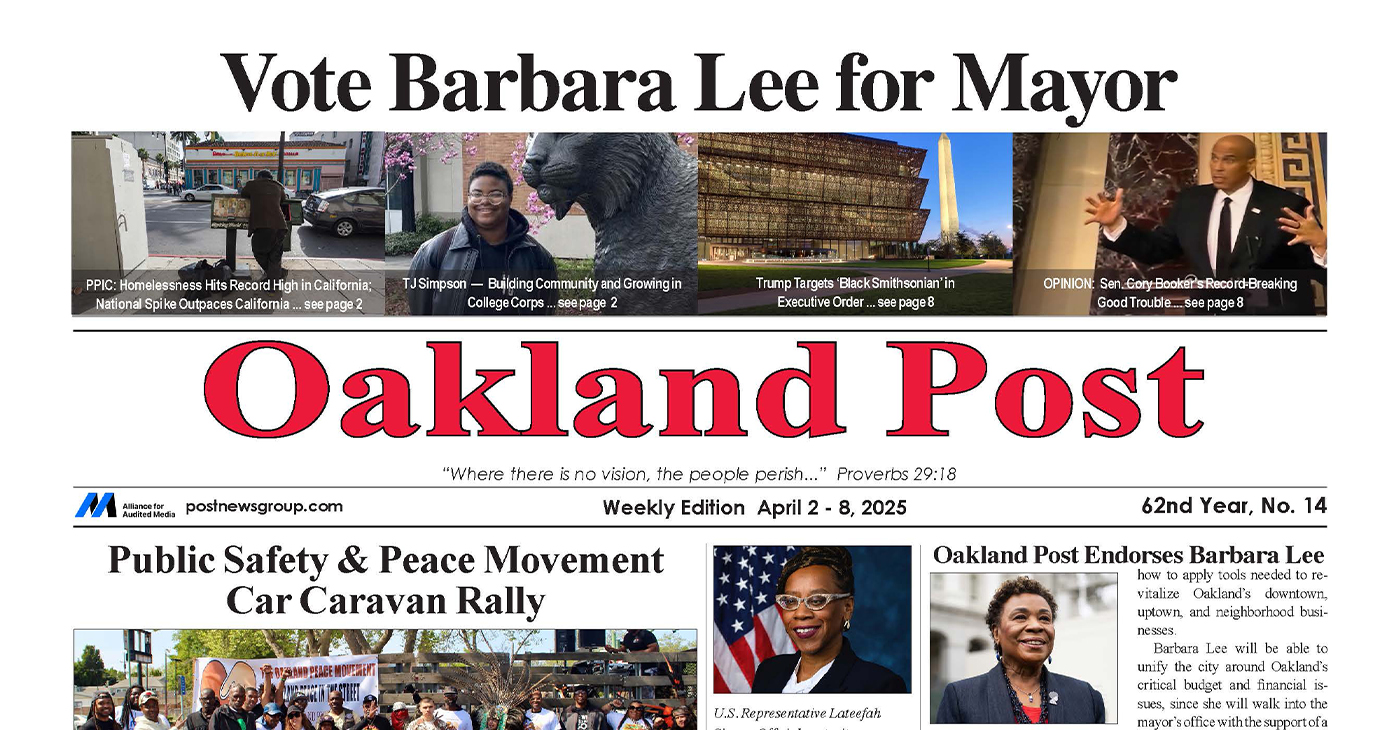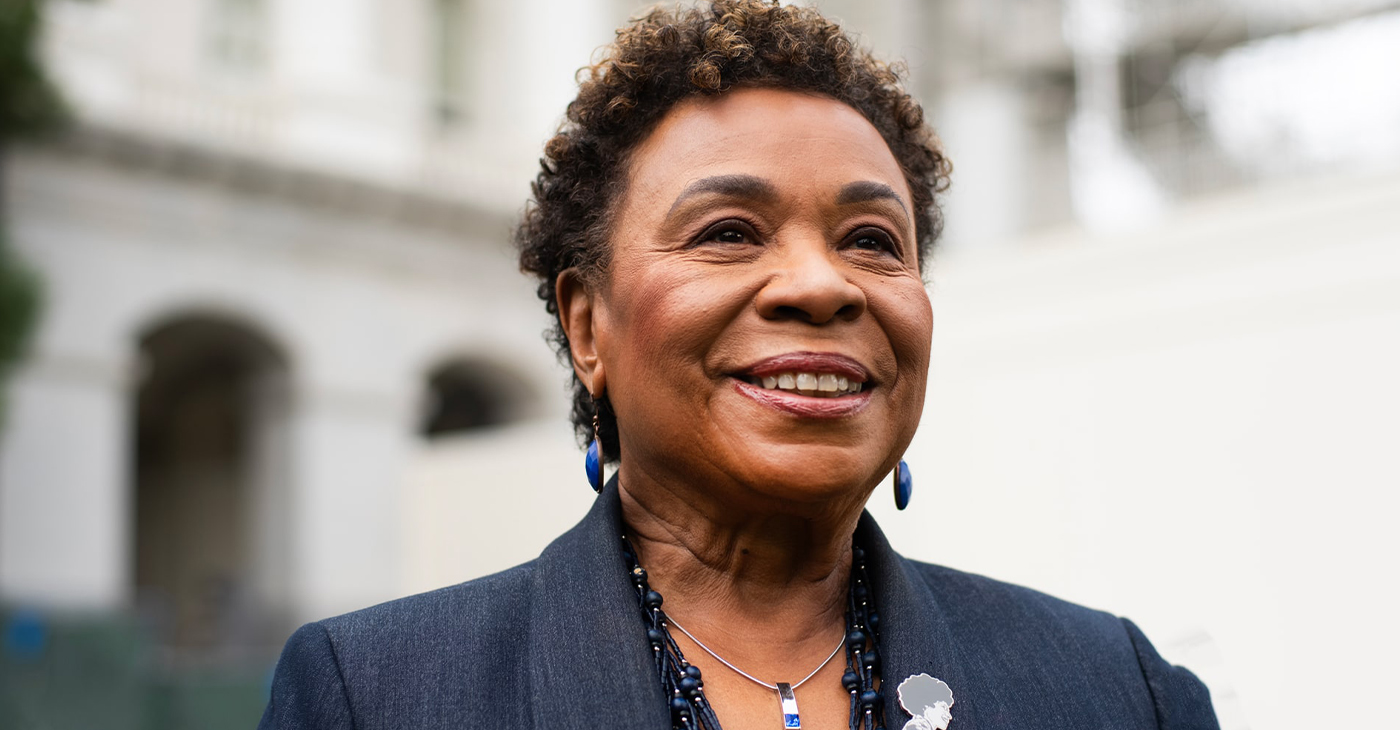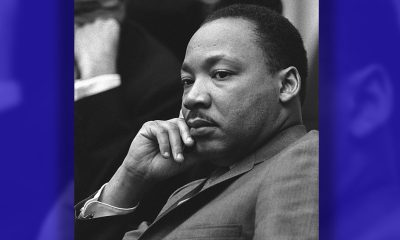Activism
Chauvin Sentence? Did You Hear What Vincent Chin’s Killer Got?
The man who killed Vincent Chin, Ronald Ebens, a white auto worker, spent no jail time for the crime and was allowed to plea bargain to second-degree murder.

Another moment to consider Black and Asian solidarity on social justice issues arrived last week when ex-Minneapolis cop Derek Chauvin was sentenced to 22.5 years in prison for murdering George Floyd. Should have been the max—30 years—some said. Some TV commentators said there were drug dealers who got more time than Chauvin.
I was just coming off my self-styled news “retreat” on the murder of Vincent Chin, where I went over the stories I’ve done the last 39 years on the most infamous Asian American hate crime ever that took place in Detroit in 1982.
You want to hear about miscarriage of justice?
The man who killed Vincent Chin, Ronald Ebens, a white auto worker, spent no jail time for the crime and was allowed to plea bargain to second-degree murder. His sentence? Three years’ probation, a fine of $3,000, and $780 in court costs. That’s it—for murder in the second degree.
Outrage ensued and there was a federal civil rights case where Ebens was found guilty and sentenced to 25 years in prison. But Ebens won an appeal for a new trial and got a change of venue from Detroit to Cincinnati. On May 2, 1987, Ebens was found not guilty on the federal charges.
Only the civil case remained, and Ebens was ordered to pay the Chin estate $1.5 million. But Ebens has used the bankruptcy laws in his new home state of Nevada to avoid paying the estate a dime.
All those facts were fresh in my head when I heard about Derek Chauvin’s sentence of 22.5 years.
At first, I was surprised, but frankly, there’s nothing light about more than two decades in prison. With the potential of other cases Chauvin is facing adding more time, the fact that a cop is being imprisoned still gives one a sense that justice, though imperfect, was served.
In the Chin case, the aggrieved are still waiting for any sense of justice.
Asian Americans the Model Minority? Not in the Chin case.
One-time Oakland resident, Helen Zia, Asian American writer and the executor of the Chin estate, told me Chin’s fight for justice was all uphill.
“We had civil rights people who said, ‘We’ll support you because Vincent was Chinese and thought to be Japanese, but if he were Japanese, we won’t support because he would’ve deserved it,’ ” Zia said. “I said ‘What? You’re kidding?’ The implication was the Michigan ACLU and the Michigan National Lawyers Guild were also touched by the xenophobia Asians set off in the home of the auto industry. “They strongly opposed a civil rights investigation because they said Asian Americans are not protected by federal civil rights law. That was something we had to argue.”
Fortunately, the national offices of those legal groups had more inclusive ideas.
“Here were some of the most liberal activist attorneys saying Asian Americans shouldn’t be included under the civil rights law. Vincent was an immigrant. We had to establish he was a citizen, with the implication there might not have been a civil rights investigation if he had not been naturalized. All of this stuff…these were hurdles we had to overcome with major impacts today,” Zia told me.
“Can you imagine if the Reagan White House had followed the National Lawyers Guild’s Michigan chapter and the ACLU of Michigan and said, ‘Why should we look expansively at civil rights? We shouldn’t include immigrants and Asian Americans.’ And at that time, that would include Latinos too, because at that time if you were not Black or white, what do you have to do with race? Those were the things people would say to us.”
Hard to imagine Asian Americans weren’t even heavy enough to get on the scales of justice not too long ago in the 1980s. But that was the case.
All the more reason for a greater understanding of Black/Asian solidarity.
We’ve all been othered, dissed, and denied from day one, with a lot more in common than you think.
Activism
Oakland Post: Week of April 2 – 8, 2025
The printed Weekly Edition of the Oakland Post: Week of April 2 – 8, 2025

To enlarge your view of this issue, use the slider, magnifying glass icon or full page icon in the lower right corner of the browser window.
Activism
Oakland Post Endorses Barbara Lee
Barbara Lee will be able to unify the city around Oakland’s critical budget and financial issues, since she will walk into the mayor’s office with the support of a super majority of seven city council members — enabling her to achieve much-needed consensus on moving Oakland into a successful future.

As we end the celebration of Women’s History Month in Oakland, we endorse Barbara Lee, a woman of demonstrated historical significance. In our opinion, she has the best chance of uniting the city and achieving our needs for affordable housing, public safety, and fiscal accountability.
As a former small business owner, Barbara Lee understands how to apply tools needed to revitalize Oakland’s downtown, uptown, and neighborhood businesses.
Barbara Lee will be able to unify the city around Oakland’s critical budget and financial issues, since she will walk into the mayor’s office with the support of a super majority of seven city council members — enabling her to achieve much-needed consensus on moving Oakland into a successful future.
It is notable that many of those who fought politically on both sides of the recent recall election battles have now laid down their weapons and become brothers and sisters in support of Barbara Lee. The Oakland Post is pleased to join them.
Activism
Oakland Post: Week of March 28 – April 1, 2025
The printed Weekly Edition of the Oakland Post: Week of March 28 – April 1, 2025

To enlarge your view of this issue, use the slider, magnifying glass icon or full page icon in the lower right corner of the browser window.
-

 Activism2 weeks ago
Activism2 weeks agoWe Fought on Opposite Sides of the Sheng Thao Recall. Here’s Why We’re Uniting Behind Barbara Lee for Oakland Mayor
-

 #NNPA BlackPress2 weeks ago
#NNPA BlackPress2 weeks agoRev. Dr. Jamal Bryant’s Black Church Target Boycott Mobilizes 150,000
-

 Activism3 weeks ago
Activism3 weeks agoSan Francisco Is Investing Millions to Address Food Insecurity. Is Oakland Doing the Same?
-

 #NNPA BlackPress4 weeks ago
#NNPA BlackPress4 weeks agoFighting to Keep Blackness
-

 #NNPA BlackPress2 weeks ago
#NNPA BlackPress2 weeks agoRecently Approved Budget Plan Favors Wealthy, Slashes Aid to Low-Income Americans
-

 Activism2 weeks ago
Activism2 weeks agoFaith Leaders Back Barbara Lee for Mayor, Criticize Candidate Loren Taylor for Dishonest Campaigning
-

 Activism3 weeks ago
Activism3 weeks agoOakland Post: Week of March 12 – 18, 2025
-

 Activism2 weeks ago
Activism2 weeks agoGroup Takes First Steps to Recall District Attorney Diana Becton



















































